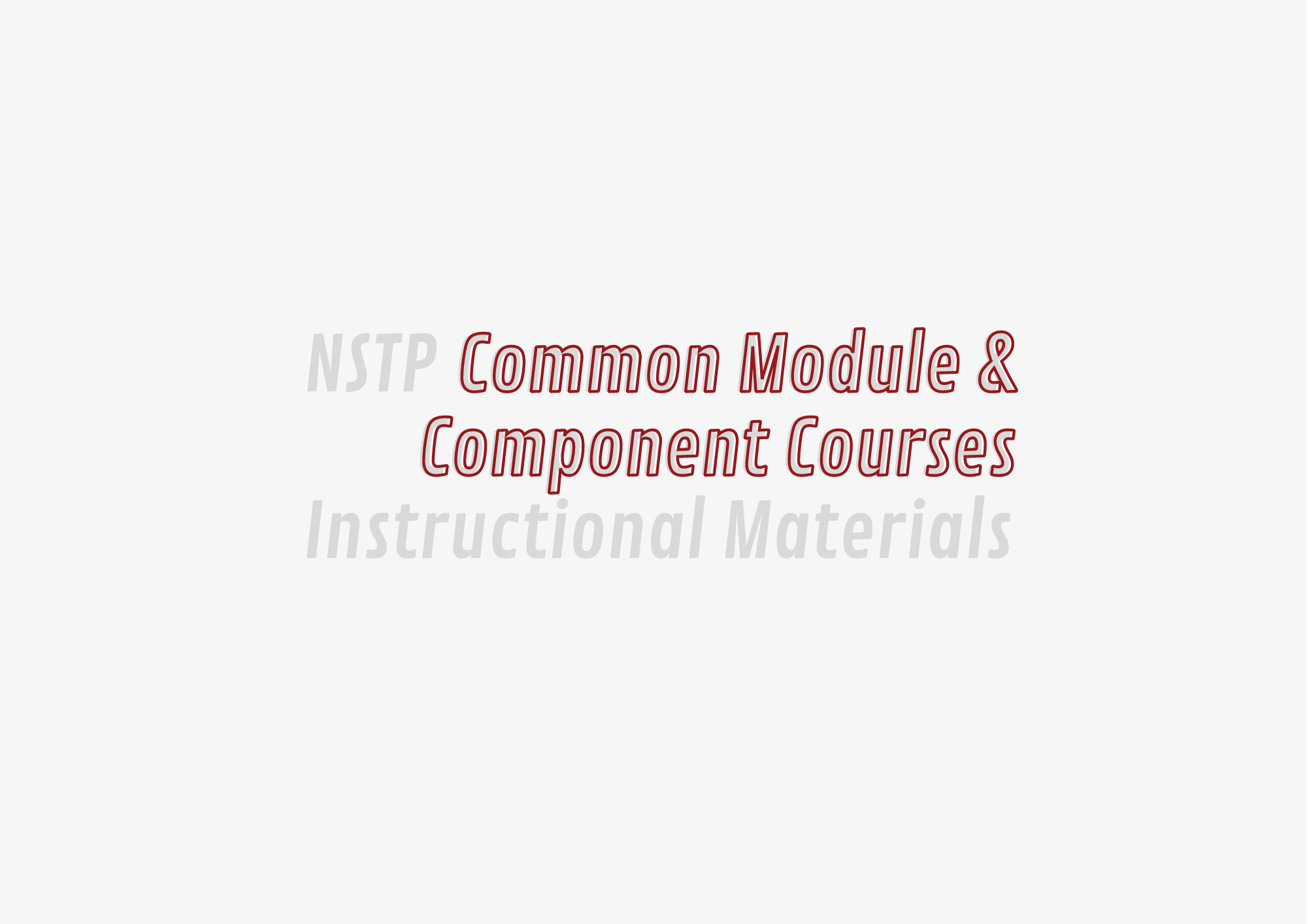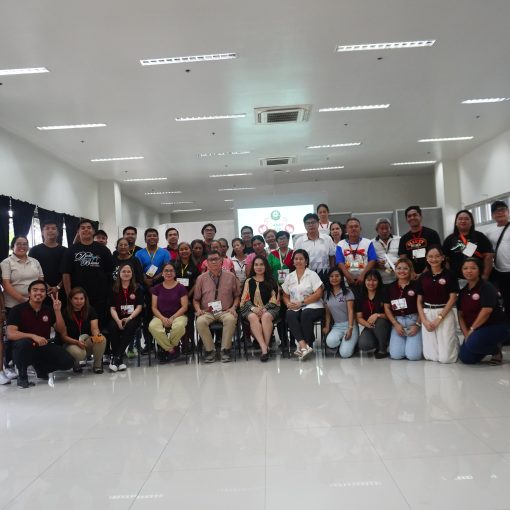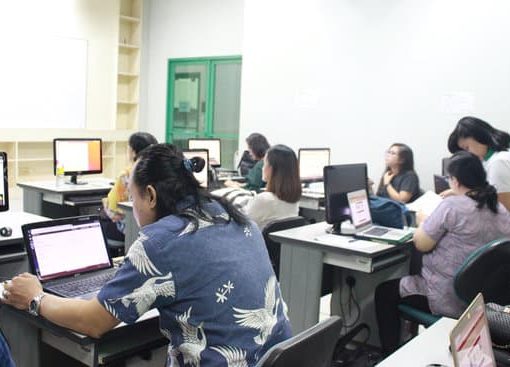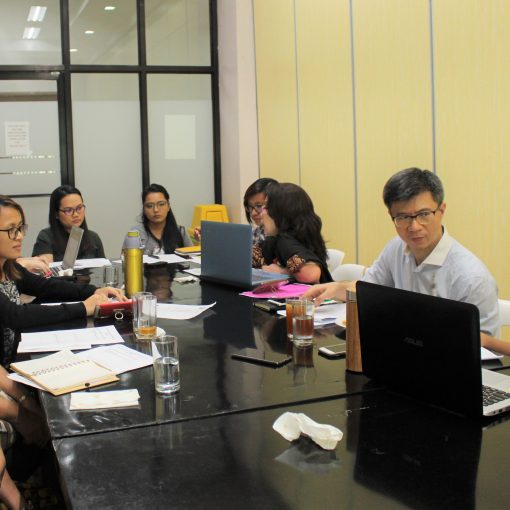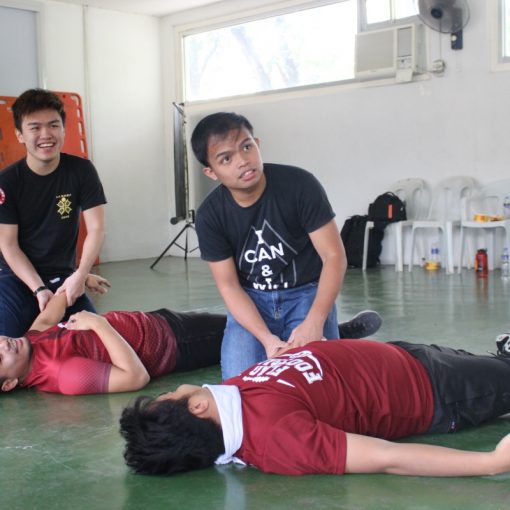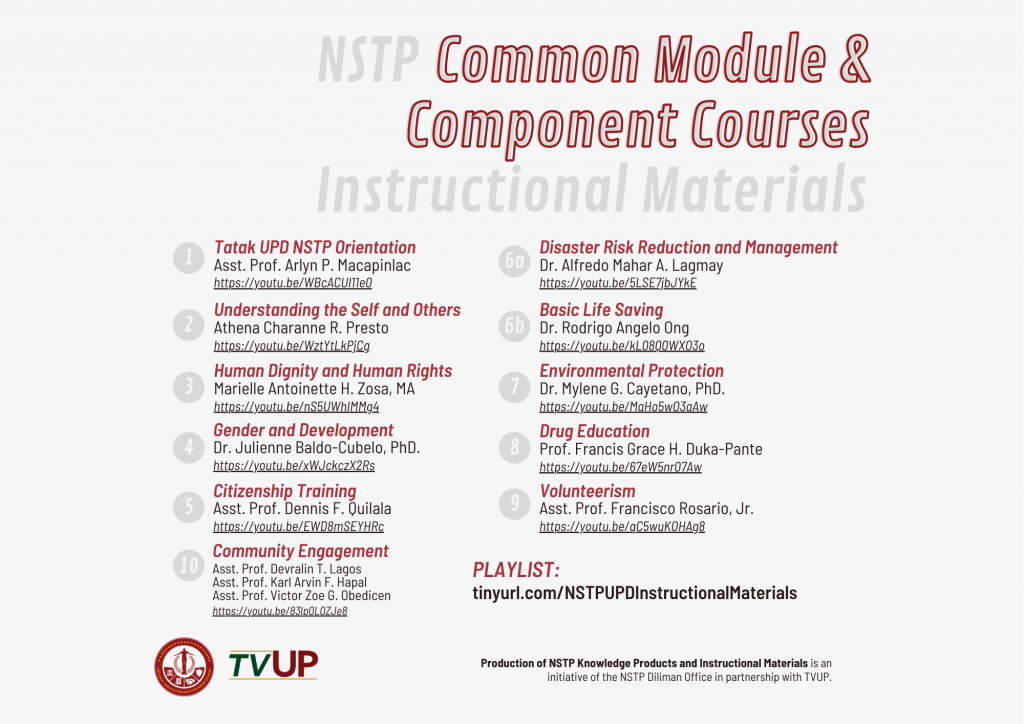
On October 15, 2020, the NSTP Diliman Office disseminated 11 free online NSTP instructional materials on common and component module topics for UP Diliman program implementers and the wider public.
In partnership with TVUP, the television arm of the University, the project aims to strengthen NSTP remote learning course offerings, aid NSTP students and instructors during this semester’s remote learning mode, provide easily accessible NSTP materials for instructors and students, and provide additional knowledge products to the Tatak UP Diliman NSTP module.
This set of instructional materials is based on a recalibrated outcomes-based education-framed NSTP 1 course. These knowledge products, characterized through a series of video-recorded discussions by content experts, are nods to NSTP Diliman common modules. The topics of the modules are a result of a series of writeshops that standardized the learning objectives and topics of UP Diliman NSTP content. The NSTP modules were approved by the NSTP Diliman Council through the guidance of Dr. Rosella Torrecampo, the Writeshops Resource Person.
In September, TVUP, headed by Professor Emeritus Grace J. Alfonso, started the recording sessions with our pool of speakers from various colleges and departments of the University.
“These materials would greatly help the community of NSTP implementers in teaching their students,” said Director Jonalou S. Labor, PhD. He added that the Office pushed through with these content in order to provide support both for teachers and students not only in UP Diliman but to other higher education institutions in the country.
Here are the materials:
Tatak UPD NSTP Orientation – Asst. Prof. Arlyn P. Macapinlac
NSTP Tatak UPD Orientation covers topics on the role of UP as a public service university, the rationale and Implementing Rules and Regulations (IRR) of NSTP, the Tatak UPD NSTP Framework, and the reservist program.
Understanding the Self and Others – Ms. Athena Charanne R. Presto
Understanding the Self and Others discusses different perspectives on the concept of self and relates these to one’s role and responsibilities in society. The module also prompts students to explore possible community engagement involvement.
Human Dignity and Human Rights – Ms. Marielle Antoinette H. Zosa
Human Dignity and Human Rights tackles the basic concept and principle of human dignity and human rights and contextualizes these in the Philippine setting. The module also studies both local and global human rights situations, issues, violations, and projects.
Gender and Development/UP ASH Code – Dr. Julienne Baldo-Cubelo
Gender and Development and UP ASH Code probes the development of the concepts of gender including SOGIE, and the laws and mandates on gender development. The module also examines issues and violations related to gender and orients students about the UP ASH Code.
Citizenship Training – Asst. Prof. Dennis F. Quilala
Citizenship Training discusses the basic concepts of nation, nationalism, nation building and citizenship as well as the rights, privileges, and duties of a citizen. The module further looks into the concept of cultural sensitivity and competence.
Disaster Risk Reduction and Management – Dr. Alfredo Mahar A. Lagmay
Disaster Risk Reduction and Management provides knowledge on basic DRRM concepts, frameworks, and procedures and the application of these in local settings and actual situations. The module also surveys some of the best practices in DRRM through the assessment of actual DRRM implementation in communities.
Basic Life Saving – Dr. Rodrigo Angelo Ong
Basic Life Saving equips students with fundamental training on basic life saving techniques and protocols and best practices in situational analysis during emergencies. The module also involves the administration of basic life saving techniques.
Environmental Protection – Dr. Mylene G. Cayetano
Environmental Protection discusses local and global environmental issues and concerns as well as the factors and forces behind these. The module also examines best practices and lifestyle choices in environmental protection and preservation.
Drug Education – Prof. Francis Grace H. Duka-Pante
Drug Education tackles the concept of drugs including the key terminologies and misconceptions, and the legal aspects of drug use as well as its pertinent provisions and sanctions. The module also instills the importance of maintaining a healthy and drug-free life.
Volunteerism – Asst. Prof. Francisco Rosario, Jr.
Volunteerism provides a deeper understanding of the concept of volunteerism and service-learning in the context of the university and the larger community. The module looks into the different types and fields of volunteerism, cites specific volunteerism projects of OSLO-Pahinungod, and reinforces the importance of volunteerism and public service.
Community Engagement – Asst. Prof. Devralin T. Lagos, Asst. Prof. Karl Arvin F. Hapal, Asst. Prof. Victor Zoe G. Obedicen
Community Engagement covers topics on the definition, importance, and principles of community engagement. The module presents a context of community engagement in the Philippines, enumerates different forms of community engagement activities, and details the process as well as challenges of initiating and implementing community engagement activities.
The NSTP Diliman Office is a unit under the Office of the Vice-Chancellor for Academic Affairs, mandated to administer, manage, and coordinate all NSTP offerings and activities in UP Diliman as well as to develop programs and projects aimed towards the harmonized implementation of NSTP in UP Diliman.
by Arron Paul M. Lambon

